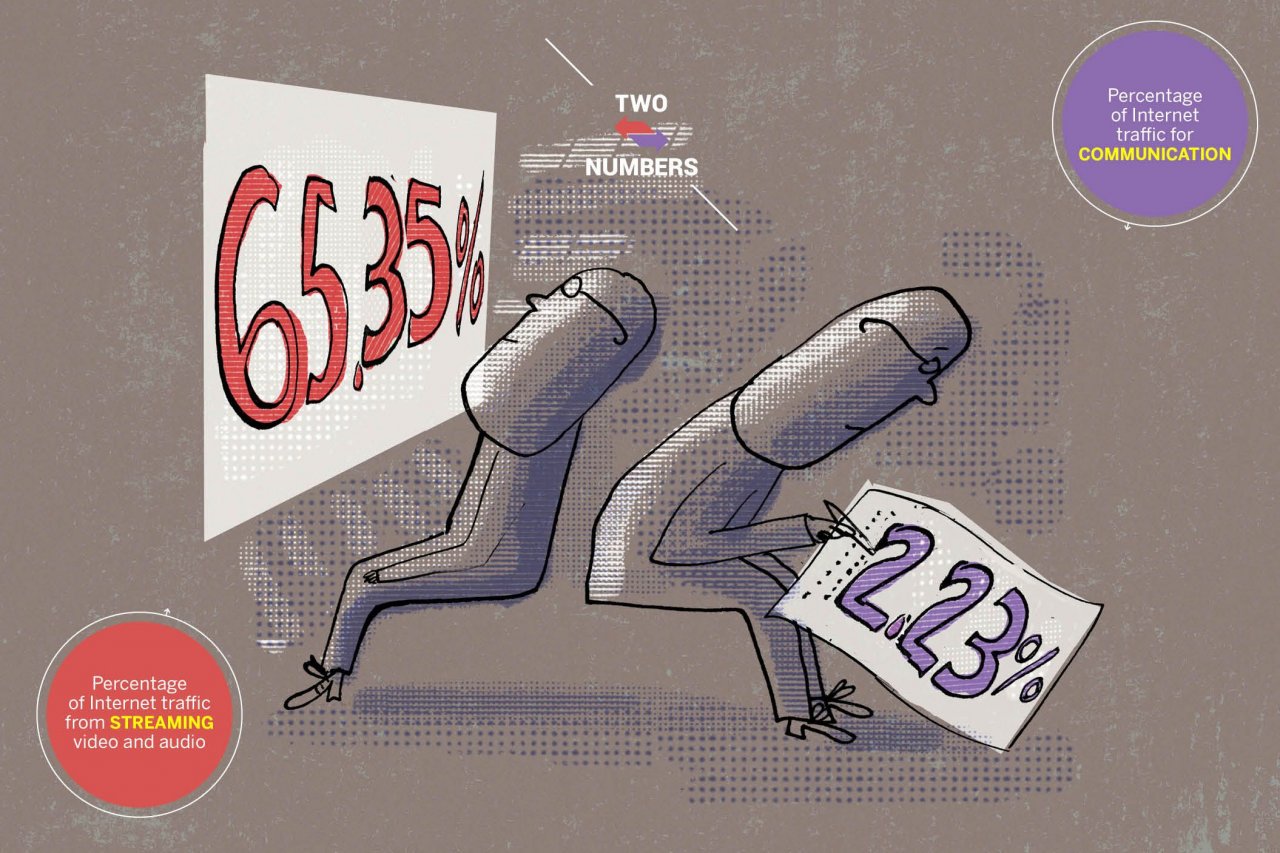In 1995, Newsweek published what would become a widely ridiculed piece of writing. It was a column by an American astronomer and counter-hacker named Clifford Stoll that predicted, among other things, no "online database" would ever replace your daily newspaper, e-books were too "clunky" to catch on with readers and e-commerce sites would never replace malls because they lacked "a most essential ingredient of capitalism: salespeople."
Today, Amazon, the undisputed heavyweight champion of e-commerce, is worth $250 billion. It bought The Washington Post, one of those daily newspapers Stoll predicted would be unperturbed by the digital revolution, in 2013 for $250 million. (Full disclosure: The Washington Post Co., now the Graham Holdings Co., once owned Newsweek, but it sold the magazine for $1 in 2010.)
But Stoll's column gets a bad rap. Yes, he was wrong about almost everything, but his implied thesis—that the Web wasn't going to live up to the hype—was correct. What was supposed to be a platform for civilized discussion instead became a way for us to spend hours watching porn and bingeing on House of Cards.
Last year in North America, 65.35 percent of all traffic—the raw number of bytes sent back and forth across the Internet—was streaming audio and video, according to Sandvine, a networking equipment and software company based in Canada. (That's for only fixed connections, not mobile traffic.) Of that, Netflix accounted for 34.7 percent. YouTube came in second at 16.88 percent. Part of the reason these numbers are so big is because streaming media takes up a lot of bandwidth, as you've discovered if you've ever tried to watch Netflix with a crappy Wi-Fi connection and do something else online at the same time. But part of it is because Americans watch a staggering amount of Netflix: 42.5 billion hours in 2015, according to Netflix's most recent quarterly earnings report. A little perspective: 42.5 billion hours is equivalent to about 4.9 million years. Modern humans have been around for only 200,000 years.
The second-highest share of traffic overall last year went to Web browsing, with 7.09 percent. Marketplaces—Amazon, eBay, etc.—gobbled up 6.39 percent of all traffic. Sandvine doesn't track traffic on the so-called "dark Web"—the Internet's black market—but a significant chunk of it is devoted to the trade of illegal drugs, including prescription medication. But what of communication, that which supposedly distinguishes us from lower beasts? How much of that did we do? According to Sandvine, communication—including things like Skype, WhatsApp, iMessage and FaceTime—accounted for just 2.23 percent of all traffic last year in North America.
The Internet may still reshape humanity. We haven't seen the ending yet. But if these data are any indication, we're just going to watch videos on YouTube and buy stuff on Amazon till the sun goes out.




















